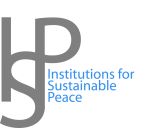Collaborative project hosted and managed by the German Institute of Global and Area Studies.

Main website here.
Introduction
Formal state institutions are important for the regulation of conflict, particularly in societies characterized by divisions along lines of ethnic or religious identity or social disparity. The design of institutions such as territorial state structure, electoral systems and party regulations, system of government, the judiciary and the security sector can help to alleviate, if not resolve, underlying tensions between identity groups and/or former opponents. The debate on institutional engineering for divided societies is hence obviously greatly relevant for the prevention of violence as well as for overcoming a violent past. However, empirical evidence on which institutions work for divided societies and post-conflict settings remains largely inconclusive. This is at least partly due to a lack of integrative research in the field and applies to at least two aspects:
First, there has been little effort to identify how specific contexts such as the respective character of divisions or the traumatic experience of violence condition the prospect of successful institutional engineering.
Second, scholars typically focus on one type of institution instead of engaging in integrative analyses of the interaction of the whole set of institutions, and there is little exchange between specialists on various institutions and their impact.
Project Outcomes
The international network project Institutions for Sustainable Peace (ISP) was funded by the Leibniz Gemeinschaft for three years. Its main aims were to help overcome these deficiencies by
-
Creating a network that systematically brings together specialists from different topical areas of research as well as diverse theoretical and methodological backgrounds
-
Institutionalizing exchange of ideas and cooperation and
-
Developing an integrated analytical approach to the institutional challenges in divided societies
-
Yielding concrete research results and providing practitioners with advice on which institutional choices can best deal with which conflict risks in divided societies.
As part of this collaboration, the CCDP co‐hosted the 3rd ISP network conference at the Villa Barton in May 2014. A collection of project papers as an edited volume in the CCDP’s Routledge book series was published in 2016, find it here.
For more information on the network please visit www.giga-hamburg.de/isp. If you have any questions or comments, please contact isp (at) giga-hamburg.de.





